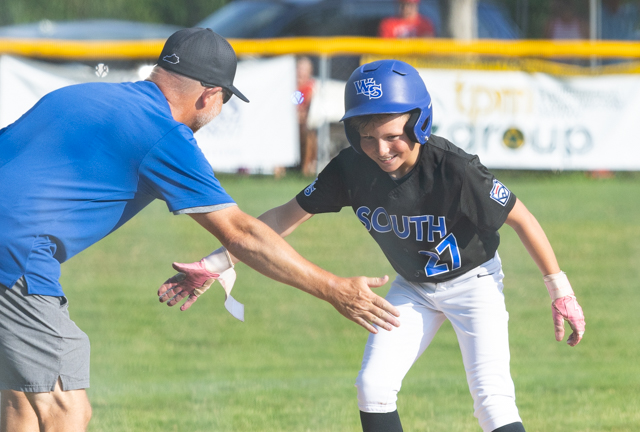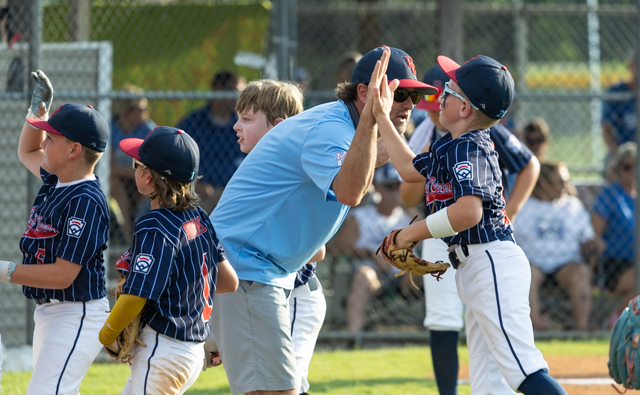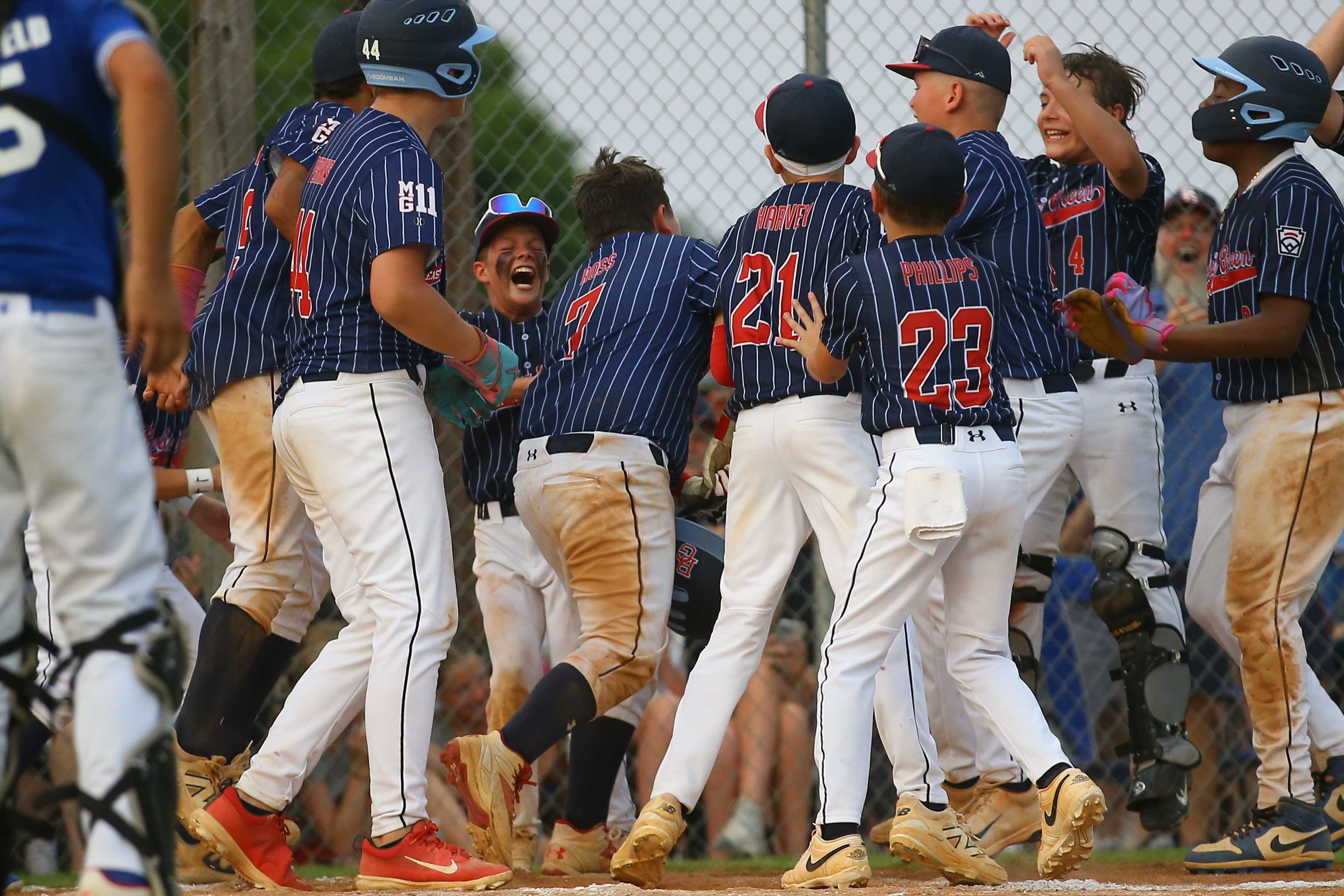Glasgow native Riherd’s KHSAA scoreboard still going strong
Published 11:30 am Thursday, June 5, 2025

- Glasgow native Frank Riherd started the KHSAA's internet scoreboard in 1997 and the site quickly became the most accurate and updated of its kind in the country. (COURTESY)
Frank Riherd didn’t play any sports in high school.
His father and grandfather owned a sporting goods store in his hometown of Glasgow, but Riherd was more interested in music, taking piano lessons and playing the organ at Glasgow Baptist Church. Still, in the early spring of 1968, during his freshman year at Glasgow High School, he got swept up in the excitement of small town school spirit like everybody else.
Led by Jerry Dunn, Rex Bailey and Larry Ward, the Glasgow Scotties basketball team reached the KHSAA Sweet Sixteen and topped Covington Catholic, Louisville Thomas Jefferson and Caneyville for a spot in the state championship game.
Riherd’s father, also named Frank, was sponsoring the tournament’s hospitality room. He phoned home between the Saturday morning semifinals and the evening championship to summon his family to Freedom Hall for the opportunity to witness history. Ona Riherd and young Frank made the one-and-a-half-hour drive in time to watch Glasgow top Seneca and win the 1968 state title.
The energy of the evening and the “aura of the Scotties” were compelling enough that Riherd began keeping stats for the football and basketball teams the following school year, but he still wasn’t interested in the actual sports so much as the numerical data that emerged from the games.
“Watching that on a microscopic level, I found really interesting,” he says.
His aptitude for numbers earned Riherd acceptance to Georgia Institute of Technology, but before leaving Kentucky, during the summer between his high school graduation and freshman year in Atlanta, he worked as a transmitter operator for WBKO TV in Bowling Green. The experience primed him for his collegiate coursework in electrical engineering and his work-study job in an on-campus engineering facility where he helped build software that would collect and analyze data from radar systems. It was a perfect fit.
“To me, software is like music,” he says. “There’s a coordination between the different parts that makes it work.”
Following his college graduation, Riherd’s engineering career moved him to California, Germany, and ultimately France. In 1996, he left his job working for VLSI Technology to focus on consulting. The internet was in its nascent stages and Riherd saw opportunity. During a visit home to Glasgow in early 1997, he sold his father on an idea for a trophy order website for the sporting goods store.
They kept brainstorming about other possible uses for the internet, including the dissemination of statewide sports scores. The elder Frank Riherd liked the scoreboard idea, too, and encouraged his son to take it to the Kentucky High School Athletic Association. They drove together to Lexington and met with Julian Tackett, who was then in the role of assistant commissioner and in charge of the KHSAA’s technology.
“It seemed as though he had an enthusiasm as well as a good feel for what all it would take,” remembers Tackett, who is now the Commissioner of the KHSAA. “I think we actually took it a little further than he thought it would go, and quicker than he thought, because it seemed like a really good idea.”
The fall of 1997 was the first official season for the Riherd’s scoreboard. Schools were initially unreliable when it came to submitting schedules and scores. Riherd tried to pull as many as he could from local media outlets, but found many to be withholding. To make it easier for the schools, he created a toll-free number for coaches and the general public to call to report scores. The only challenge was that Riherd, who still lives in France, was operating on a seven-hour time difference from Central Daylight Time.
“I was doing a lot of that stuff at three o’clock or four o’clock in the morning, my time,” he said.
The next iteration was an automatic email sent out to coaches on game days with a link to submit scores electronically at day’s end. Later, each coach and athletic director was given a password to enter their own scores and player statistics. It didn’t take long before proud parents and local fans were the ones putting the pressure on coaches to enter scores, rather than Riherd and the KHSAA.
“And that to me says people are finding this interesting, and the public is expecting it,” Riherd said.
Riherd recently ran the numbers on total page views for the all of the 2024-2025 KHSAA teams. Since March 15 of this year, the school with the most combined views for its teams was Bowling Green High School. Second place was Johnson Central. Of the top 10, only one school was from either Lexington or Louisville.
“I think it means that sports outside of metropolitan areas are extremely important, particularly in eastern Kentucky and the less populous areas of the state,” he said.
The KHSAA uses the scoreboard’s data for many of its statistical compilations and reports, and schools and coaches have bought in. Riherd says that last school year, of the nearly 25,000 games across the state, there were zero missing scores, and nearly 98% of them were reported within 24 hours.
“That’s been our North Star: does this help the player?” he said. “I think that’s been a pretty good model as we’ve developed the system and made it more functional.”
Nearly three decades in, Riherd says the current scoreboard is running like a well-oiled machine. New coaches need to be trained on how to enter their scores and stats, but the strength of the infrastructure, both technologically and socially, has kept turnover from effecting continuity.
Last year murmurs surfaced on social media about a possible dissolution of the scoreboard. Tackett said that while the scoreboard was never actually in danger, the reaction served as testament to its value.
“We know it is an invaluable tool,” Tackett said. “People tell us that cover other states in different levels of journalism, whether it’s TV, radio, newspaper or whatever, that nobody else has this, especially to the accuracy level that we’ve been able to maintain, so it just makes sense for us to keep doing it. It’s a service we’ve been doing long enough now to where it would be noticeable if it wasn’t there.”
For his part, Riherd still doesn’t consider himself a big sports fan, but as was the case back on the sidelines at Scotties’ games, he enjoys the story that the numbers tell.
“Take the Sweet Sixteen, whenever an underdog team plays and wins, that’s exciting because you can look at the RPI numbers, the relative strength percentages of teams, and see someone that was not supposed to win but actually does win, and you say, ‘Well, that must have been an interesting game, what happened there?’ ” he said. “I have these flashbacks to when Glasgow won in ’68. I just remember the electricity of that.”





